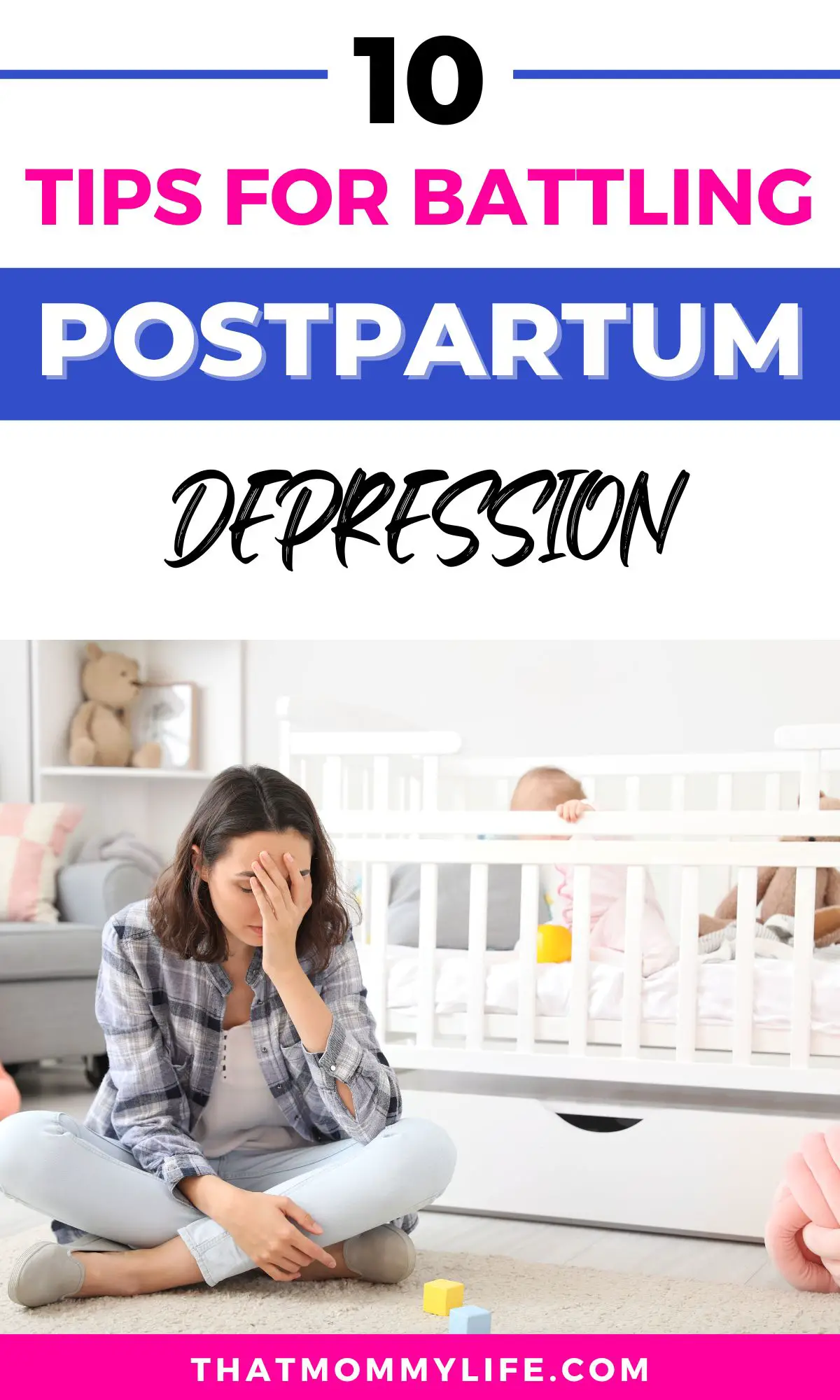Disclosure: Some of the links below are affiliate links. At no cost to you, I will earn a commission if you click through and make a purchase.
The journey into motherhood is a profound and transformative experience, but it can also bring about unexpected challenges.
Postpartum depression (PPD) is a common but often underestimated aspect of the postpartum period. As a new mom, it’s essential to recognize the signs and seek support.
In this article, I’ll discuss what postpartum depression is, how to identify its symptoms, and explore practical steps for coping and seeking help.
1. Understanding Postpartum Depression

Postpartum depression is a form of clinical depression that affects women after childbirth. It can manifest in various ways, from persistent feelings of sadness and anxiety to changes in sleep and appetite.
Understanding that PPD is a real and treatable condition is the first step toward seeking support.
2. Recognizing the Symptoms
It’s crucial to be aware of the signs of postpartum depression.
These may include persistent feelings of sadness or emptiness, changes in appetite, sleep disturbances, overwhelming fatigue, irritability, and a loss of interest or pleasure in activities.
If you’re experiencing any of these symptoms, it’s essential to reach out for help.
Related Content: 8 Practical Tips For Peeing Postpartum
3. Talk Openly About Your Feelings
Expressing your emotions is a powerful way to cope with postpartum depression. Talk openly with your partner, family, and friends about your feelings.
Sharing your experiences can help you feel heard and understood, and it fosters a support system around you.
4. Seek Professional Help
Don’t hesitate to reach out to a healthcare professional if you suspect you may be experiencing postpartum depression.
Obstetricians, primary care physicians, and mental health professionals can provide guidance, support, and, if necessary, recommend appropriate treatment options, such as therapy or medication.
5. Prioritize Self-Care

Taking care of yourself is crucial during the postpartum period. Prioritize self-care activities that bring you joy and relaxation.
This could include taking short breaks, getting fresh air, practicing mindfulness, or engaging in activities you love.
6. Connect with Other Moms
Joining a support group for new moms can be immensely beneficial. Connecting with others who are going through similar experiences can provide a sense of community and understanding.
Many communities offer local or online support groups where you can share your journey and gain insights from others.
7. Involve Your Support System
Asking for help is a sign of strength, not weakness. Lean on your support system for help with daily tasks and childcare.
Enlist the support of your partner, family, and friends to ensure you have time for self-care and moments of rest.
8. Set Realistic Expectations
Adjusting to motherhood is a significant transition, and setting realistic expectations for yourself is essential. It’s okay if everything doesn’t go perfectly, and it’s okay to ask for help when needed.
9. Stay Informed
Educate yourself about postpartum depression and the resources available. Being informed about the condition and knowing where to turn for support can empower you to take proactive steps toward recovery.
10. Monitor Your Progress
Keep track of your emotional well-being and notice any changes over time. If you’re undergoing treatment, communicate regularly with your healthcare provider about your progress and any adjustments that may be needed.
Conclusion
Postpartum depression is a challenging but treatable condition. By recognizing the symptoms, seeking support, and prioritizing self-care, you can navigate this period with resilience and strength.
Remember that you’re not alone, and reaching out for help is a courageous and crucial step toward healing.
Your well-being matters, and with the right support, you can emerge from postpartum depression with newfound strength and resilience.
Pin this image so you can find this post later!

As an Amazon Associate I earn from qualifying purchases.
